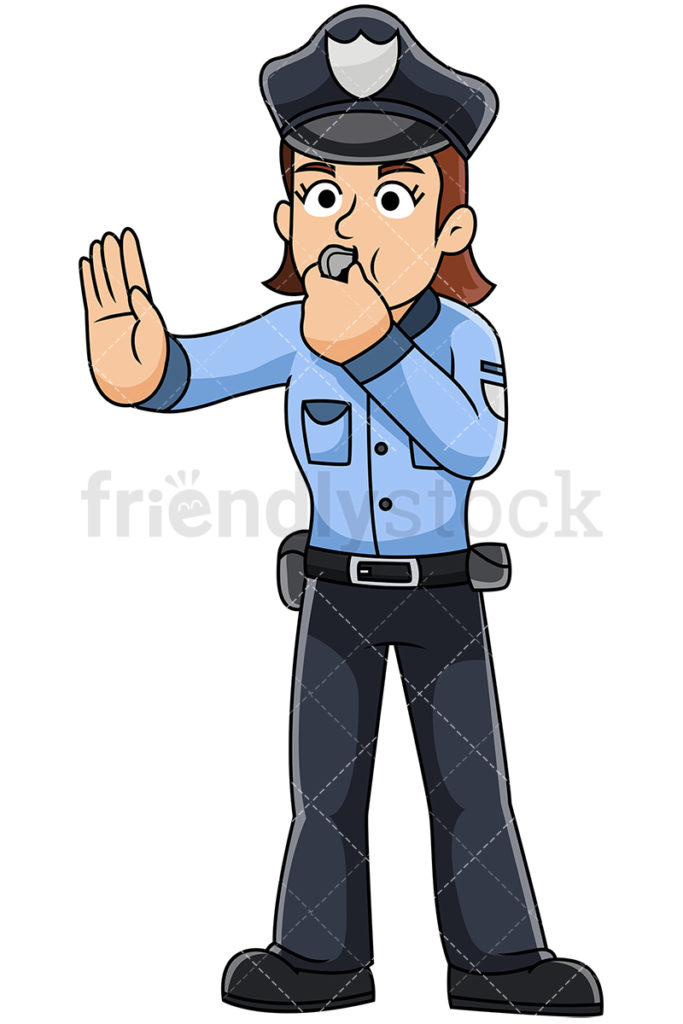By John Gascoyne

Fort Collins, Colorado – some local marijuana dispensaries have
been determined to be serving in the National Interest, or
something approaching that and, thus, are allowed to be open
and dispensing during these difficult times. Just drive your car
down the designated alley and a masked and gloved dispenser-
person will take care of you; they will also charge you hefty fees
for a product that once used to grow like a weed.
With this in mind, it seems appropriate to reflect upon the
history of the evil weed in Fort Collins and environs. Be aware, of
course, that this account will be quite similar to the fable of the
six blind tourists and the elephant – only one person’s perspective
A beginning of sorts: With a Little Help from Friends

The year is 1967 and the place is the bucolic Land Grant
institution known as Colorado State University. It was there and
then that a small cadre of malcontents were whooping it up by
ingesting low-grade, local loco weed. Enter a newcomer who
insinuated himself into their midst and was well-received. In fact,
a young woman member of the crowd received the newcomer on
a somewhat regular basis.
And then…and you knew this was coming (insert siren noises,
guns in the air, harsh cries) the kids were busted. And the young
cowboy-narc testified against all of them. History does not record
whether or not his sexual dalliance with the one bustee became a
part of the official transcript. We of the student press, however,
did ask, editorially, if it were proper to drop a dime on your pillow
companion. Some weeks later, the young narc and I had a
confrontation of sorts; just harsh words with no body blows
exchanged. (Worked for me.)
Agrarian pursuits
Under the Morill Land-Grant Act of 1862, CSU had been
established as an agricultural institution. In the mid-1960s, there
were still holdover Colorado statutes mandating that male
students were obligated to spend “10 hours per week on the
school farm” and that female students had to spend “a like
amount of time studying the home economic arts”.
In concert with this agrarian ideal, one young undergrad had
established a sizeable garden in the back yard of his rural rental.
And – here it comes again – the bust. A fair number of the local
constabulary landed in the yard while the student was watering
his garden. They had a warrant to search his place. In the
kitchen, they found a jar of suspicious leafy green stuff. The
green stuff was confiscated and the student was cuffed for the
ride downtown. This was an era lacking in plant identification
sophistication and the “leafy green stuff” was ultimately
determined to be oregano. The bust, as far as the gendarmes
were concerned, was a bust. The student was returned to his
home where, when the coast was clear, he burned his entire
garden to the ground. “Whew,” he was heard to say.
Enter the young lawyers…

Fast forward to the early ’70s. Your author was now a Fort
Collins lawyer, eager to snatch youngsters from the jaws of
justice. He and his partners had offices over the City Drug
building at Mountain and College. Business was good and they
sometimes referred to themselves as the City Drug Lawyers.
Simple possession of even a small amount of weed back
then was a felony and bustees were looking at possible serious
time in prison. As noted, business was good.
One bustee had (allegedly) sold some weed to an
undercover agent in a dimly-lit farmhouse several months before
being arrested. The agent testified that he had sat on the arrest
warrant in the hope that more sales would take place. They
didn’t. The passage of time and the poor lighting at the sale
seemed conducive to some in-court fun and games.
The once-bearded hippy was to come into court shaved,
wearing a three-piece suit, and carrying a large red book of
Colorado laws. When his name was called, he was not to
approach the bench as ordered. Instead, his lawyer would assure
the judge that the defendant was present, but request that the
arresting officer identify the perp from the crowded courtroom
gathering. The argument was that, in coming forward, the
defendant would be assisting in his own prosecution.
The plan seemed solid enough as the odds were that no
correct identification could be made, especially considering the
mildly clever disguising. The solidity of the plan broke down
precisely at 8 a.m. when the defendant’s name was called. He
wasn’t in the courtroom as he had agreed to be. I had to assure
the judge that I would let him know when my client was in fact
present. At about 8:10 the guy strolled in, oblivious to the idea
that he had just destroyed a great, if unique, defense. I told the
judge that the dummy was now present and the preliminary
hearing began, bereft of what could have been a novel get-out-
of-jail-free defense.
We shifted into Plan B – the emergency backup, less-assured
defense. Under interrogation, the arresting officer acknowledged
that the arrest warrant had been issued by the judge now
occupying the bench. We then had a colloquy about the word
“forthwith” in the warrant as in “…shall arrest forthwith”. The
witness said, in essence, “…yeah but, I thought I could entice
him into another sale, blah, blah…”. This failure to make the
arrest for many months, contrary to his order, chapped the judge
a good deal. His two-word determination was beautiful: “Case
dismissed.”
Acapulco Gold
Another case handled by one of my partners, David Bye,
involved a young man who was arrested on the charge of coming
in from Mexico with about 60 pounds of bricks of marijuana in a
suitcase in the back of his pickup. The load also included many
sombreros and serapes as the client intended to set up a small
import business.
A “motion to suppress evidence” was filed, alleging that the
deputies couldn’t turn a routine traffic stop into a legitimate bust.
Critical to the defense was an assertion that the deputies could
not really have smelled the green weed in the back of the truck.
I was sitting in what we called the second chair – taking
notes and looking officious while David carried the heavier weight
of the defense. My sense was that the smell test was a thin
defense at best. To our client’s relief, as well as to my immense
surprise, the judge agreed that the deputies were fibbing about
smelling the weed – that they had tossed the contents of the
truck and discovered the contraband. Case dismissed.
Some days later, I was in the evidence locker of the sheriff’s
office, collecting the various tourist items for the client’s intended
retail business. There was also a large suitcase with the client’s
name on it. I pulled it from a shelf and it fell heavily to the floor.
The contents could not be in doubt. Nonetheless, I picked it up
and started walking toward the door, not sure how far I wanted
to pursue the joke. The evidence custodian stopped me and said
we should see what was in the suitcase. There were no contents

in the bag other than a great many packages of weed wrapped in
butcher paper. I feigned surprise and scrammed.
This same deputy took his job seriously:
He once proposed that the letter H be inscribed on the
forehead of anyone busted for heroin possession.
On another occasion, I asked him to give a copy of Papillion
to my client while she had some time on her hands. After shaking
the book down, he decided not to forward it. In what may have
been the greatest unintended pun of all time, he remarked,
“We don’t allow none of that ‘scapist literature in the cells.” (If
this doesn’t tickle you, talk to an English major about it.)
Busted and broken
A high school student was busted for selling individual sticks
of weed in the school. Fortunately for him, his father was a
detective on the police force and the school released him to his
father’s care. No charges were filed.
The detective then contacted the young man, Charley, who
had sold the weed to his son. He demanded that his son’s $100
be returned and accused Charley of being a drug salesperson.
Charley said he knew nothing about drugs, saying only that he
had borrowed $100 from the son and was happy to pay it back.
He agreed to meet the father and return the money, not knowing
that the father was in fact a detective, a very large detective.
The two met in a parking lot. Charley held out the $100; the
detective held out the bag of weed. Charley feigned ignorance of
the grass and declined accepting it. The detective socked Charley
in the face, knocking him out, breaking his nose, and dropping
the baggie on his inert form. Another detective came out of
hiding and arrested Charley for possession of the dropped weed.
This was a big case and was tried to a jury of six. I assumed
my favored position of second chair. The jury couldn’t reach a
verdict and we breathed easier. This was premature and the
matter was set for a retrial in a different courtroom. A district
court judge from Aspen was brought in for the second trial.
We had a bit of an edge from having tried the case once and
this time the jury came back with a not guilty verdict. In
chambers, the judge told the two of us that when he saw the red
faces and white foreheads of the jurors he figured them for
farmers and assumed we would be toast. His words: “If you boys
can get a verdict from this crowd, you should move to Aspen
where you will likely find a dealer as foreman of the jury”. This
funny judge later filled a position on Colorado’s Supreme Court.
At work in the dark
Another of David’s good results involved the CSU student
narc who was now a member of the FCPD. One night this officer
stopped the car driven by a young woman who didn’t have her
driver’s license with her. He followed her home and, following
reasonable procedure, went into the house with her. While inside,
and less reasonably, he began to shine his flashlight into various
rooms – dum, da, dum, dum – and the bust was on.
At the suppression hearing, David and the judge both
energetically questioned the police officer. The motion to
suppress introduction of evidence- which would kill the
prosecution – was granted. In the hall outside the courtroom, I
heard the officer tell the DA that, henceforth, he should plea
bargain any case that involved David. Way to go, partner.
Weed dealers, in those days, didn’t like to put their copious
earnings in banks. At least a few of them stashed their cash in
the pockets of their parkas. Theory was, if you had to hightail it,
you could just grab your parka and run out a back door.
The players
Justice, as is often said, is blind. While this may be true-ish,
judges are not blind and their personal predilections often were
visible in weed cases.
Our favorite district court judge was sometimes accused of
being soft on crime and criminals. We countered that argument
by asserting that he just cared about the Constitution and
followed it with particular care. Outside of the courtroom, we
sometimes referred to him as Dad.
Other judges were of a more prosecutorial bent. I was in the
courtroom when the former chief trial judge for our district,
between cases, ordered the deputy DA to read into the record the
definition of the criminal act of prostitution. The judge then
announced that, henceforward, any woman living with a dealer
(predictably a male) was sharing his illegal gains and would be
charged with prostitution. This felt like a bit of an overreach, but
no one stood up to challenge the determination.
The deputy DAs also were somewhat predictable. Some
were inclined toward some leniency and reasonable deals could
be worked out. For others, there could be no accommodation and
the defendants had to choose between copping to the charges or
gearing up for trial.
Friday night in the Fort

Time and location were factors in local law enforcement. Weekends saw heightened drug enforcement and Remington Street, home to many downtown hipsters, was a favored target. On one occasion, when the police were coming
through the front door, a young man threw his stash out of his
bedroom on the second floor. An experienced officer had
anticipated this action and was standing below the window. He
caught the weed before it hit the ground.
Another Remington Street bust I handled involved a search
warrant predicated upon an assertion that the officer had scoped
out a growing marijuana plant from his vantage point on the
sidewalk. During the raid, the suspect plant was confiscated along
with some processed weed from inside the house. The plant upon
which the search warrant was issued turned out to be a Norfolk
Pine. Close enough, the judge ruled, and the prosecution
continued.
The less-than-mellow paraphernalia bust
No account of the history of the Fort in this era would be
complete without mention of The Great Mellow Yellow
Paraphernalia Raid. The Mellow Yellow, founded by the three
great Mellow Fellows, sold hippy garb, souvenirs, and smoking
supplies, lots of smoking supplies. The smoking supplies
component really chapped a few of the local gendarmerie. One
zealous officer and one officious deputy DA agreed this could not
be allowed. Their solution was to invent a law and then proceed
to enforce it.
Puffin’ Stuff, another “head shop” was hit first. Bad luck for
them but it served as a warning. Anticipating the next raid, I
hurried over to the Mellow Yellow as the bust was going down. I
verbally challenged the enforcement of this non-law and was
ready to go mano-a-mano with the zealous officer. A friendly
plainclothes detective dragged me away, agreed that this was an
illegal bust and suggested that I chill a bit and then go and file a
lawsuit.
David and I tried to file suit in the local district court. The
chief judge, with no basis in law, said that we could not proceed
in the local court system. We moved things to the Federal Court
in Denver after naming the city and others as defendants. Judge
Sherman Finesilver hinted to the City attorneys that they might
want to return the swag. When it came time for major money
damages, however, the judge hinted to us to trim our sails a
good deal. We took the hint and settled for cents on the dollar –
on the elevator on the way to lunch with the City’s attorney.
Art Fasbender, one of the Mellow Fellows, and I have
exchanged written accounts of this fiasco based upon our own
viewpoints. The two accounts are essentially the same. The
Mellow Yellow closed down a few months ago after 50 years of
being open.
Your turn
This little bit of history, as noted, is from one person’s recall.
Lots of folks have their own recollections, their own stories. It
would be fun to read, and add to this writing, other accounts of
this strange part of our local history.

An ex of mine grew a few marijuana plants in our Old Town backyard. It was surrounded by a 5’ fence and a ring of corn stalks. You had to physically enter our yard or climb above the fence to see the pot.
We had a super-religious neighbor who apparently had no qualms about Invading our space and reported us to the police. A nice, young officer showed up and politely asked to see our garden. Instead of busting him for cultivation, the officer allowed him to break down the plants for a mere “possession” charge, which disappeared from his record in a couple years. Nice man!
That was excellent.
Thanks,
Wes
John: A most enjoyable read. Thanks
So if an attorney is semi-retired and performs legal assistance for no fee, is that called Semi-Pro Bono?
OK, I’ll add a story. I was one of four residents of 714 Remington who were served search warrants by the FCPD on Friday evening, May 10 1968. Three of us were caught with illegal drugs and spent the weekend in jail; the fourth guy habitually kept his stash under a loose shingle on the roof outside his third-floor garret window. So his room was “clean” and he escaped immediate legal complications, but a week later he slipped off the dewy roof whilst attempting to retrieve his stash early one morning. He fell three stories and landed flat on his back, with a nasty jagged stump sticking up in between his torso and his outflung arm; had he landed on it he would certainly have been impaled & killed. As it was, he somehow escaped any bone breakage, though he was horribly bruised both inside and out and later became a Scientologist.
The other three of us all made bail and were able to complete Spring Quarter at CSU. I eventually was convicted of willfully and feloniously possession of 7.4 grams (about a tablespoon) of cannabis seeds and stems; my third-floor next door neighbor only had LSD, STP, and Methamphetamine, so he was charged with misdemeanor possession of Dangerous Drugs. The third guy had about two ounces of pot but pled guilty and drew two years of probation, which he served without incident in Denver. My next-door neighbor “fall partner” and I were both offered probation too, but the probation officer at that time was a religious fundamentalist who told us we’d have to go to church every Sunday, get a haircut every two weeks, not even have any alcohol where we lived, and not be around any female under 25 years of age unless an adult chaperone over 25 was present. That meant he’d be unable to continue living with his girlfriend, so he took a plea bargain, refused probation, and elected to serve 6 months in County Jail. I also refused probation, telling the judge that I did not feel I could work within the Probation Officer’s restrictions & requirements. I was sentenced to an indeterminate term in the Colorado State Reformatory, not to exceed 14 years, gavel smack and that was that. I ended up serving just 9 months, plus two years of parole. During the time I was imprisoned, Colorado made possession of a half-ounce or less of cannabis a misdemeanor. And much later, of course, it became the first of the United States to fully legalize recreational cannabis.
During his term in County Jail, my fall partner received an unexpected visit from the Probation Officer, who brandished a recent copy of Life Magazine with an erroneous article about LSD causing genetic damage. He said to the inmate in question, “You told me in your pre-probation interview that you had taken LSD a number of times; according to this magazine article, you are a danger to future generations, and if you’ll just sign here we’ll take you over to the hospital where you will receive an orchiectomy.” “What’s that?” “Well, essentially it’s surgical castration, so you will not be able to pass your damaged genes along to any offspring.” My fall partner’s instant and rather profane outrage pretty much drove the P.O. right back out of the visitation room.
A few years later Mr. Gascoyne made a pro-bono pardon appeal to Governor Richard Lamm on my behalf, arguing that I had been convicted and sentenced under a felony law that was no longer on the books. I was granted a full pardon, with full restoration of my constitutional rights, and my felony conviction was purged from state records.